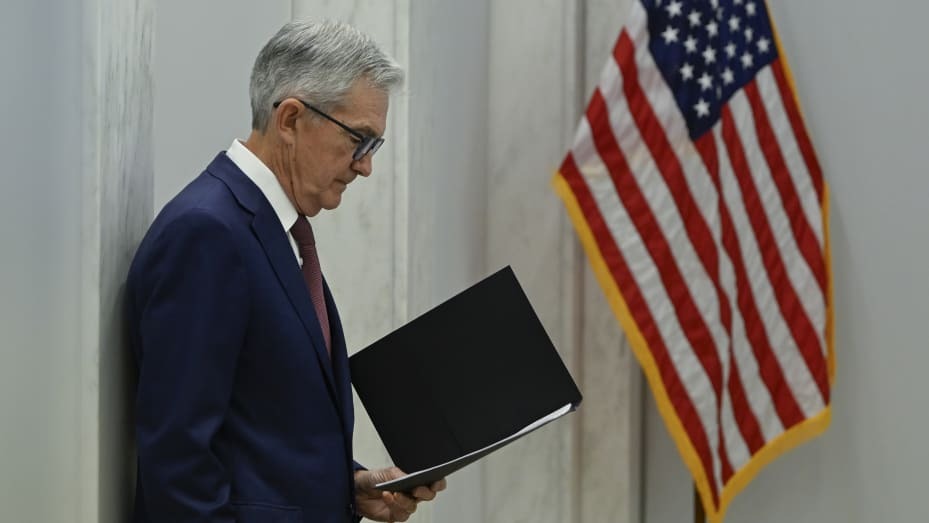
The volatile nature of bitcoin and the intense reactions of cryptocurrency markets to world events – political or financial – are well known by now.
News travels faster than light, causing price movements almost instantaneously. The cryptocurrency market operates 24/7 around the world on an entirely digital infrastructure.
But gear up, because things might get even wilder. Wars, elections, economic crashes – all these events could send crypto prices on even crazier rides than we’ve seen before.
With the election campaign in full swing, U.S. politics and official statements can single-handedly determine the short-term trajectory of bitcoin, along with the broader cryptocurrency market, with the country being a major economic player in the world.
Dr. Orhon Can Dagtekin
US politics, its effect on bitcoin prices
The emergence of bitcoin as an alternative to the central banking system has also been a source of criticism for policymakers.
While neither cryptography nor its application through digital assets was a new idea, the U.S. government bailouts, combined with inflationary pressures from adopted monetary policies throughout the years, led to the birth of bitcoin in the aftermath of the 2009 financial crisis.
Although the first few years of Bitcoin’s existence were relatively uneventful, it managed to fly under the radar of regulatory authorities. However, its use in money laundering through websites like Silk Road later complicated its image. Subsequently, Bitcoin emerged into the mainstream as an investment tool.
This shift and the introduction of other cryptocurrencies like Ethereum and Ripple have complicated the relationship between U.S. decision-makers and digital assets.

US sanctions, their ripple effects
Even if policies or regulations do not directly target bitcoin or any other cryptocurrency, price shocks can occur indirectly. The U.S. government’s sanctions decisions are a good case in point.
History tells us that sanctions, usually carried out by the U.S., tend to cause price declines while creating uncertainty. Many countries, such as Russia, Iran, and Venezuela, have turned to crypto assets to circumvent them.
On the other hand, as the public tries to mitigate the risk of adverse economic consequences, an increase in crypto adoption can also be observed in sanctioned countries.
The White House’s sanction decisions tend to be accompanied by sustained downward pressure on cryptocurrencies because of fears of tighter regulations.
Although sanctions are a prime example, decisions are not always based on international trade or relations but can be a combination of the monetary and legal perspectives of respective authorities.

Influences over Fed, SEC
The Federal Reserve and the U.S. Securities and Exchange Commission (SEC) roles should be underlined in this context.
The Fed operates independently within the government and the SEC is an independent federal government agency bound by federal laws. Their announcements and policies play a crucial role in determining where cryptocurrencies head.
Federal Reserve decisions on interest rates and money supply indirectly affect crypto prices through market mechanisms, while announcements of potential regulations by SEC or crackdowns can cause price volatility.
Many in the market are familiar with Gensler’s past statements, which have brought stark price movements, or, more recently, Biden’s veto, in which the U.S. House failed to override this month’s SEC guidance on crypto accounting policy, raising concerns about constraining the SEC’s future regulatory abilities.
Considering Trump’s approach to the Federal Reserve during his campaign, a Republican victory could be a catalyst for sharp price action in many markets, cryptocurrencies included.
Dr. Orhon Can Dagtekin

Upcoming elections: Can it trigger another bull market?
One can also observe that uncertainty during election periods can be a source of market volatility, and different candidates’ stances on crypto can have an impact on investor sentiment. One prominent example is El Salvador’s President Nayib Bukele’s declaration of bitcoin as legal tender in the country, which helped boost bitcoin’s presence and price worldwide, while many private investors in the U.S., like Michael Saylor, have been buying the asset for quite some time now.
Nevertheless, with the country’s enormous economic capacity, U.S. decision-makers can steer the price in any direction with much less effort. In this respect, the upcoming U.S. election becomes even more significant.
Thus, recent movements and events deserve special attention. After the assassination attempt on former President Donald Trump, bitcoin and many other cryptocurrencies experienced a price spike, and when Biden decided to quit the race, a downward pressure emerged.
It is well known by now that Trump advocates for self-custody and bitcoin, while Biden (or Democrats) prefers a tighter approach to cryptocurrencies.
Although short-term movements and minor shocks can significantly impact the cryptocurrency market, these stances can be seen as signals to cryptocurrency investors worldwide.
Biden’s administration has always taken a cautious approach which the next candidate will likely maintain, focusing on regulation while emphasizing consumer protection which is generally perceived as less crypto-friendly. Trump’s initial opposition to cryptocurrencies has shifted to a more supportive attitude. He is now seen as potentially more favorable to the crypto industry. Recent market reactions may be reflecting this change in stance.
Dr. Orhon Can Dagtekin
However, even a single hour is a very long period in the market and a level of uncertainty may persist until the elections end. Despite the different approaches of the candidates, a clear stance by U.S. policymakers can help stabilize the market in the long run, even if the winning candidate is not supportive of bitcoin’s future.
Dr. Orhon Can Dagtekin is currently working as an assistant professor in the faculty of financial sciences at Ankara Haci Bayram Veli University. He received his undergraduate degree in Economics from Bilkent University, followed by a Master’s degree in Financial Engineering and Risk Management from the University of Essex.






